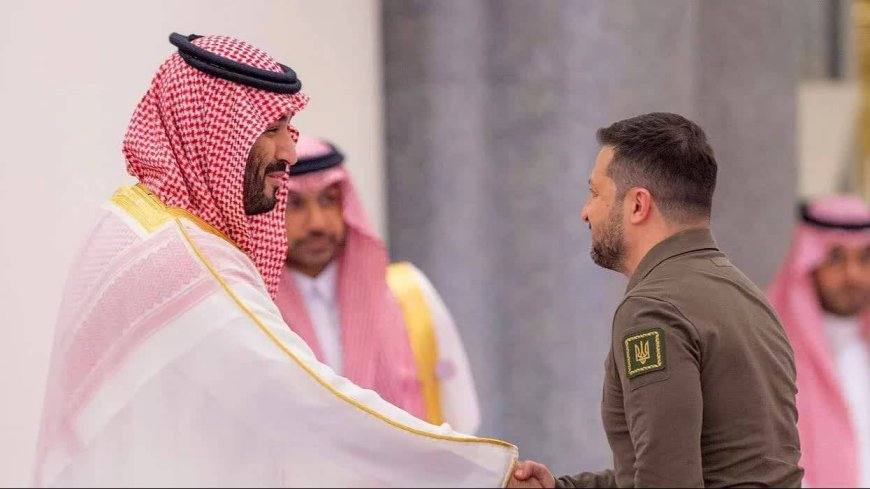Saudi Arabia's Role as Mediator? Hosting International Talks for Peace in Ukraine
Saudi Arabia's Role as Mediator? Hosting International Talks for Peace in Ukraine

According to a report by the Wall Street Journal, Saudi Arabia is poised to host a significant international gathering aimed at facilitating peace talks and finding a resolution to the ongoing conflict in Ukraine. The meeting, scheduled for next weekend, will bring together officials from 30 countries, excluding Russia. It is seen as a continuation of the Copenhagen meeting held in July. The primary objective of this gathering is to establish a comprehensive framework for initiating peace negotiations between Russia and Ukraine. The decision to hold the meeting in Saudi Arabia suggests the country's potential role as a mediator between the West and Russia, given its diplomatic ties with both sides. Other nations, including China, Turkey, Israel, and various African countries, have also expressed their readiness to mediate and have presented their own plans. However, apart from Turkey, these mediation efforts have yet to progress beyond the planning phase due to various obstacles, such as prisoner exchanges and the grain agreement. The Saudi-hosted peace talks, on the other hand, are seen as a significant step forward in the process, although a definitive resolution to the conflict is unlikely to be achieved in the near term.
The selection of Saudi Arabia as the host country for this meeting, along with its potential role as a mediator, highlights the nation's capacity to engage in major international affairs through the strategic use of influence and its established economic standing. Crown Prince Mohammed bin Salman's objective in hosting and mediating these talks is to strengthen Saudi Arabia's geopolitical position and global influence, in line with the country's ambitious 2030 vision. It is worth noting that any mediation efforts involving Ukraine would require the approval of the United States, and Riyadh's involvement in the process could potentially be welcomed by the Kremlin for various reasons in the future. The West, particularly the United States, appears to view Saudi Arabia as the most suitable option among the proposed mediators. However, there may be broader motivations behind granting Saudi Arabia the privilege of hosting these negotiations, including America's efforts to bolster the position and role of its allies in the Middle East and the Persian Gulf region.
It is also possible that the agreement to have Saudi Arabia host this international meeting and subsequently mediate the conflict is a strategic move by the United States to strengthen its alliance with Saudi Arabia within the framework of normalising relations between Saudi Arabia and Israel. As the meeting approaches, the international community eagerly awaits the outcome and any results it may yield. In summary, while the war in Ukraine has proven to be highly protracted and complex, the current situation offers little clarity regarding its resolution, and it is unlikely to come to an end in the near future. Consequently, the peace talks, alongside ongoing efforts by the West to curb Russian influence and deepen the quagmire, will be pursued with multifaceted goals and objectives.













































